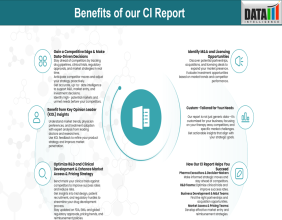Summary
- MHRA has authorised Oxford University-AstraZeneca for emergency use of their COVID-19 Vaccine
- AstraZeneca’s vaccine achieved an overall efficacy level of 70 per cent
- The British drugmaker is closely working with the Public Health England and the National Health Service as it aims to supply millions of doses in the first quarter of 2021
The UK medicine regulator MHRA (Medicines and Healthcare products Regulatory Agency), has finally given its approval to the Covid-19 vaccine developed by Oxford University and AstraZeneca for emergency use in the UK. AstraZeneca Plc (LON: AZN) expects first vaccinations to begin early in the New Year with support from the British government. This has come weeks after Moderna Inc was granted authorisation regarding the supply of its Covid-19 vaccine (mRNA-1273) in the United States.
MHRA has authorised AstraZeneca for an emergency supply of its COVID-19 vaccine (formerly AZD1222). All individuals of 18 years or older would be immunised with two doses that will be given in an interval of between four to twelve weeks, according to MHRA. This procedure was approved by MHRA as it was found safe during the clinical tests with no severe cases or hospitalisations spanning more than two weeks.
The pandemic has been a significant public health issue, and therefore, rapid emergency regulatory approval was needed for the vaccine which has been granted under Regulation 174 of the Human Medicine Regulations 2012. The UK becomes the first country to provide authorisation to AstraZeneca vaccine.
Also read: Covid-19 update: medicine regulator to assess the dose regimen for AstraZeneca vaccine
(Image source: ©Kalkine Group 2020)
The FTSE 100 listed British drug maker is closely working with the Public Health England and the National Health Service as it aims to supply millions of doses in the first quarter of 2021. Notably, AstraZeneca had earlier signed an agreement with the British government to supply 100 million doses to the UK in total.
The first batches of vaccine are already in the UK, and more will be made in the UK especially for the thousands of elderly people in care homes, manufacturing workers, police officials, healthcare workers, and people involved in the supply of essential services.
According to the Lancet Journal, AstraZeneca’s vaccine’s interim trial results released in November were found satisfactory, as it achieved an overall efficacy level of 70 per cent. Moreover, the vaccine suited the elderly and the batch size upon whom these tests were conducted of around 20,000 people. None of the volunteers within 21 days of the first vaccination were admitted to the hospital or had developed serious side effects.
The UK has been making the headlines in recent times for being infected with a new coronavirus strain. Several nations have banned passenger travel and freight movement from the UK. This could further deteriorate the critical state of the British economy. Therefore, early roll-out of vaccines for mass inoculations has become even more critical and challenging as people might be reluctant to get themselves vaccinated by choice as they might fear side-effects.
This is a proud moment for Oxford University /AstraZeneca, and they shall continue their efforts to protect the most vulnerable people all over the world and help in reducing the mortality rate for Covid-19. AstraZeneca aims to deliver 3 billion of Covid-19 doses by 2021. Although, AstraZeneca has got clearance from the British authorities, however, the FTSE 100 pharmaceutical giant is yet to get FDA’s approval.
Also read: AstraZeneca (LON:AZN) Vaccine Model Yet to Clear the Doubts of US Regulator
Secretary of State for Health and Social Care, Matt Hancock stated that this is a moment to commemorate British innovation. He added that not only are we responsible for finding the first treatment to cut the mortality for Covid-19, but this enables the vaccine to be made available to some of the poorest nations of the world at a low cost.



